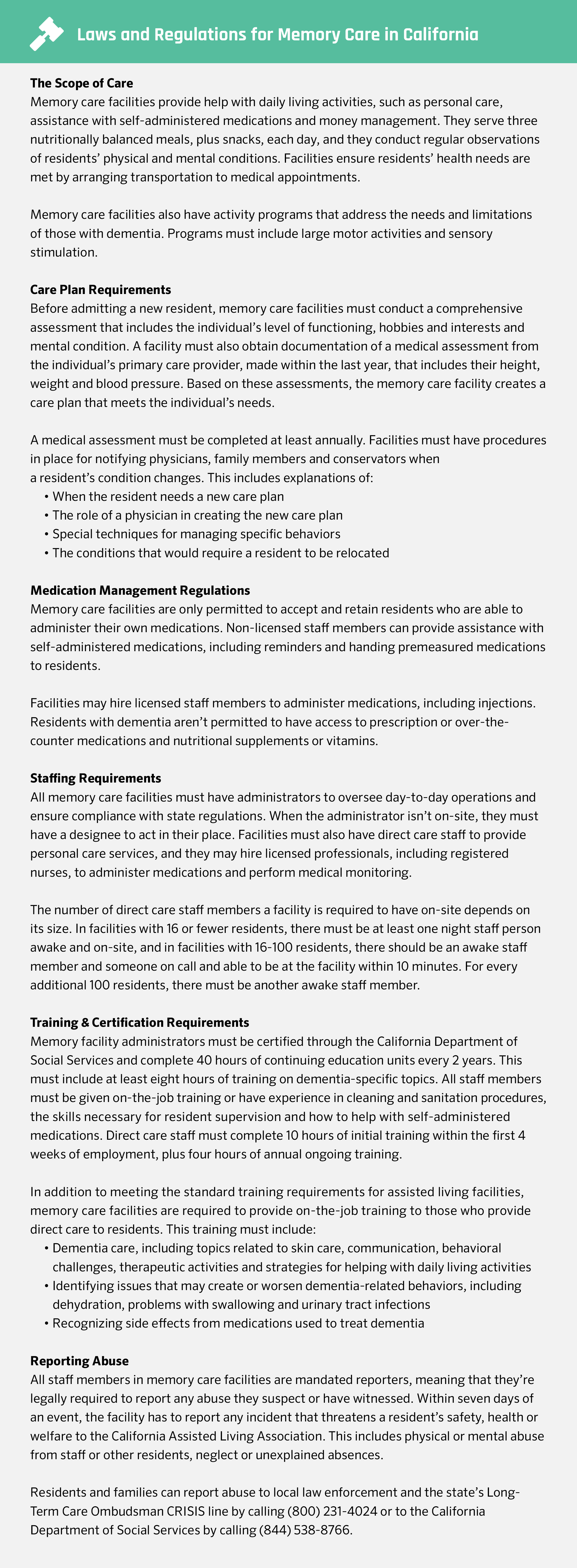The Best Strategy To Use For Memory Care Facility Charlotte
The Best Strategy To Use For Memory Care Facility Charlotte
Blog Article
The Best Guide To Memory Care Facility Charlotte
Table of Contents6 Simple Techniques For Memory Care Facility CharlotteMemory Care Facility Charlotte Fundamentals ExplainedNot known Incorrect Statements About Memory Care Facility Charlotte Memory Care Facility Charlotte - The FactsThe 8-Second Trick For Memory Care Facility Charlotte
The price of Alzheimer's treatment in assisted living neighborhoods is about 20-30% more. Many do not charge furthermore considering that somewhat these individuals do not require more treatment than various other nursing home locals.Sharing a home reduces the price to 10-20% of that for an exclusive area. Grown-up day care centers, like nursing homes, commonly do not bill added charges for people with Alzheimer's or mental deterioration.
For a lot of families, the costs of caring for an enjoyed one with Alzheimer's or mental deterioration are covered not by a single source, but rather by contributions from a variety of resources. Medicare, like a lot of health insurance policy, does not separate Alzheimer's and dementia treatment from other problems such as heart illness.
Medicare will pay for 100% of the price of nursing home care if it is clinically necessary for 20 days and 80% of the expense for an added 80 days. If a private with Alzheimer's needs treatment in a psychiatric hospital, Medicare enhances the variety of days they will supply aid up to 190 days
Top Guidelines Of Memory Care Facility Charlotte
Medicare does not pay for custodial or individual treatment that is supplied in an assisted living home. The exact same applies for home care and grown-up day treatment.
There is an exemption to this for individuals receiving hospice treatment in your home. Medicare will spend for housewife services, which consists of personal aid for people identified to be in the last 6 months of their life. Memory Care Facility Charlotte. Medigap plans, or Medicare Supplementary Insurance, does not especially supply fringe benefits for Alzheimer's individuals
These policies usually pay the 20% of the price of nursing home care that Medicare does not pay. New in 2019, Medicare Benefit (MA) plans have the ability to provide some long-term care solutions and supports as an additional wellness benefit, given they: Make up for physical impairmentsDiminish the influence of injuries or wellness conditionsReduce avoidable emergency area utilization Instances of possibly readily available advantages, which can be really crucial for individuals with Alzheimer's, consist of: Adult day careHome adjustments (mobility device ramps, get bars)Individual emergency feedback systemsRespite carePersonal treatment assistanceHomemaker servicesMeal delivery In 2020, MA plans are more broadened their supplementary benefits to assist persistantly unwell persons.
The Only Guide for Memory Care Facility Charlotte
The requirement being that with the receipt of benefits, the care recipient has a good possibility of enhancement in health and wellness or working, or at the very least preserving the exact same level of health and wellness and functioning. The new benefits can be tailored to the details demands of MA strategy enrollees. For example, a senior with Alzheimer's illness might be able to receive wandering support solutions.
Extremely couple of, need a specific medical diagnosis of Alzheimer's or mental deterioration. Rather, they consider one's ability or failure to take care of themselves by accessing their capability to perform their activities of everyday living. From a functional viewpoint, mid to late stage Alzheimer's individuals commonly certify for Medicaid advantages fairly quickly. To find out more on Medicaid and each state's waivers, please use the adhering to web links: General Medicaid, Home Care Waivers, Aided Living Waivers, Adult Day Treatment Waivers, and Grownup Foster Treatment Waivers.
While not specifically designed for Alzheimer's people, given that several Alzheimer's client are not working, have reduced earnings and require day-to-day support, it is rather common for these people to get approved for these programs. See a complete list of state non-Medicaid help programs. In addition to the more generalized help programs, numerous states have programs made particularly for people with Alzheimer's, dementia or related problems.
Excitement About Memory Care Facility Charlotte
 They simply call for a diagnosis of Alzheimer's, dementia or other relevant memory condition to get approved for the program. Respite care is momentary aid offered to the main caretaker to moved here enable them a break from looking after a private with Alzheimer's or mental deterioration. It can be provided in the home, in an adult preschool, or occasionally in an assisted living residence or other property setting.
They simply call for a diagnosis of Alzheimer's, dementia or other relevant memory condition to get approved for the program. Respite care is momentary aid offered to the main caretaker to moved here enable them a break from looking after a private with Alzheimer's or mental deterioration. It can be provided in the home, in an adult preschool, or occasionally in an assisted living residence or other property setting.There are numerous different organizations and programs using reprieve care services. It is worth keeping in mind that often times these are home care business marketing home care and marketing it as reprieve treatment even though they are charging the complete hourly rate.
The Alzheimer's Structure of America provides "Household Reprieve Treatment Grants" by funding regional, charitable, member organizations. The name "Family Respite Treatment Grants" might not always be made use of.
Extremely couple of, need a specific medical diagnosis of Alzheimer's or mental deterioration. Instead, they take into consideration one's ability or inability to care for themselves by accessing their capacity to perform their activities of day-to-day living. From a functional viewpoint, mid to late stage Alzheimer's people typically qualify for Medicaid advantages rather conveniently.
How Memory Care Facility Charlotte can Save You Time, Stress, and Money.
While not especially designed for Alzheimer's clients, considered that many Alzheimer's person are not working, have low incomes and need everyday help, it is rather usual for these people to receive these programs. try this out See a full checklist of state non-Medicaid aid programs. In addition to the extra general aid programs, numerous states this have programs created especially for people with Alzheimer's, mental deterioration or associated problems.
 They just require a medical diagnosis of Alzheimer's, mental deterioration or other relevant memory disorder to qualify for the program. Reprieve care is momentary assistance supplied to the key caretaker to permit them a break from taking care of a private with Alzheimer's or dementia. It can be provided in the home, in a grown-up preschool, or occasionally in an assisted living residence or other household setup.
They just require a medical diagnosis of Alzheimer's, mental deterioration or other relevant memory disorder to qualify for the program. Reprieve care is momentary assistance supplied to the key caretaker to permit them a break from taking care of a private with Alzheimer's or dementia. It can be provided in the home, in a grown-up preschool, or occasionally in an assisted living residence or other household setup.There are various companies and programs offering respite care services. It deserves keeping in mind that frequently times these are home treatment firms marketing home treatment and marketing it as break treatment although they are billing the complete per hour rate. There are also government financed programs that provide decreased rate or complimentary break treatment, such as the Life-span Reprieve Treatment, the National Family Members Caregiver Assistance Program, as well as programs specific to individual states including Florida's Project R.E.L.I.E.F., New Jersey's Statewide Break Care, and Connecticut Statewide Respite Care Program.
The Alzheimer's Foundation of America provides "Household Respite Care Grants" by funding local, non-profit, participant companies. These participant organizations work straight with the family members to carry out the gives. It is worth noting that local organizations in some cases combine funds with other sources. The name "Household Break Care Grants" might not always be used.
Report this page